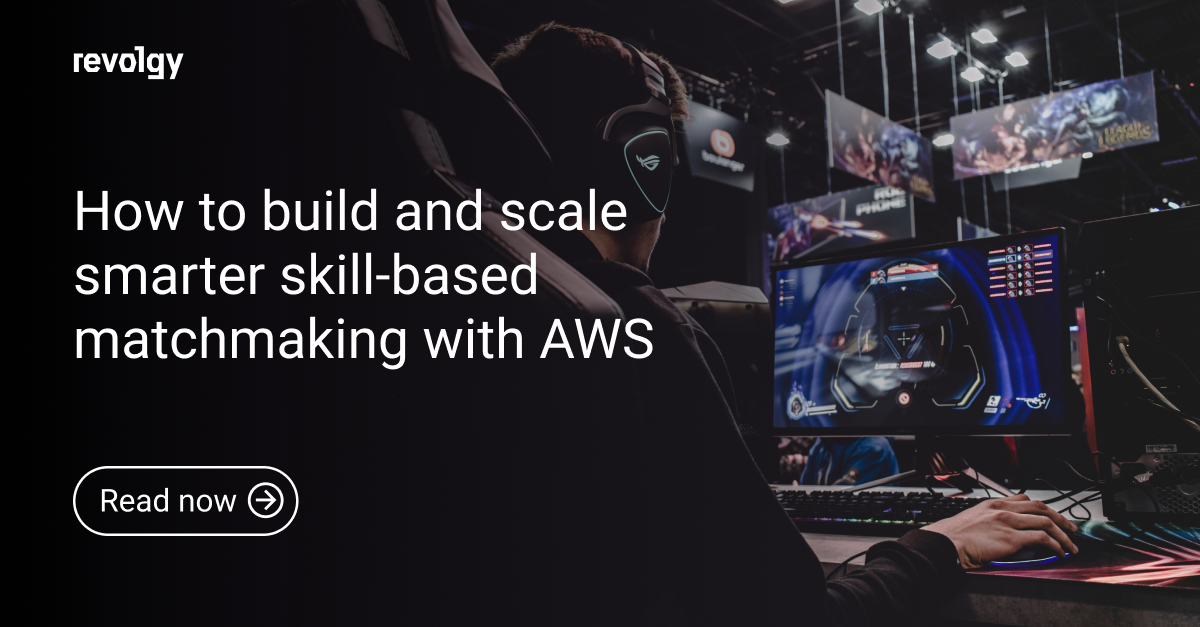Cloud Platform Services, Security, AI
Why gambling companies are moving to the cloud
The way people gamble has changed a lot — from packed casinos to betting on your phone, and now, everything is moving to the cloud. It’s not just about putting games online; it’s about making sure everything runs smoothly, loads fast, and stays secure, even if millions of people jump in all at once.
For gambling companies, the cloud makes life easier. It helps them keep up with demand, roll out new features faster, and give players a better experience. Let’s take a closer look at all the different benefits for companies.
Gambling is no longer tied to a physical location
Online gambling is bigger than ever. Sports betting, iGaming, online casinos, and even virtual poker tournaments have exploded in popularity. But running an online gambling platform is more complicated than just putting games on a website.
By moving infrastructure to the cloud, gambling companies can run games on remote servers instead of relying on physical data centers. Instead of relying on expensive, on-premise data centers, they can use cloud servers that scale up or down depending on demand. This means that during big events, like the World Cup, betting platforms won’t slow down just because millions of users log in at the same time.
Cloud-based gambling is also more flexible. It’s easier to expand into new markets, offer better game streaming experiences, and introduce new features without huge upfront costs. Instead of investing in expensive hardware, they can scale up or down as needed. And with mobile gaming growing fast, the cloud makes it easier to reach players anywhere, anytime.
Scalability and performance
Speed is everything in online gambling. On a normal night, betting activity might be steady, but the moment a big event starts, traffic can climb high. Suddenly, large amounts of players are logging in, placing bets, and checking odds at the same time. If a platform isn’t built to handle that kind of spike, things can slow down, bets might not go through, and in the worst case, the whole system could crash.
Cloud infrastructure prevents this by allowing gambling platforms to scale instantly. The system can automatically add more resources when traffic goes up and scale back down when things calm down. This means companies only pay for what they actually use, rather than maintaining expensive, unused capacity just in case.
Low latency
Speed isn’t just about handling traffic — it’s also about low latency, making sure every bet, game, and live event runs smoothly.
Cloud providers like AWS and Google Cloud use global networks to process transactions quickly, reducing lag so that players get real-time results.
CDNs ensure fast loading times
Another important part is Content Delivery Networks (CDNs). These networks help games, live streams, and betting odds load quickly, no matter where a player is located. With cloud-based CDNs, someone placing a bet in London will have the same fast, smooth experience as someone playing from Seattle.
Auto-scaling handles traffic surges
Then there’s auto-scaling. Cloud systems automatically allocate more resources to keep things running smoothly and scale back down when traffic decreases. With auto-scaling, the platforms stay fast and reliable without wasting money on unused capacity.
Data security and compliance: Keeping players’ data and money safe
Security is a top priority for gambling platforms. They process millions of transactions every day, handling sensitive information like credit card details, personal data, and betting history. A security breach isn’t just bad for business — it can lead to financial losses and break player trust.
How the cloud protects gambling platforms
Cloud providers invest a lot in cybersecurity. They use advanced encryption to keep data safe from hackers and add extra protection with Multi-Factor Authentication (MFA) to prevent unauthorized access. Many platforms also rely on AI-powered fraud detection, which spots unusual betting patterns and flags potential threats before they become a problem.
Staying compliant with gambling regulations
Gambling is one of the most heavily regulated industries, with different rules in every country. Cloud providers help companies stay compliant by offering tools that manage and store data according to local laws. AWS Local Zones, for example, let companies store user data in specific locations to meet legal requirements.
Geolocation technology
Platforms like GeoComply use cloud-based geolocation services to verify that players are betting from approved locations. This helps companies follow local gambling laws and prevents unauthorized access.
Innovating with AI, machine learning, and Blockchain
AI and machine learning are already shaping how people play. Just like Netflix recommends movies based on what you watch, AI in gambling learns what kinds of games players enjoy and suggests new ones to keep them engaged.
But AI isn’t just about personalization — it’s also making gambling safer. Machine learning can detect unusual betting patterns and flag potential fraud in real time. If a player suddenly starts placing bets that don’t match their usual behavior, AI can prevent suspicious activity before it becomes a problem.
Blockchain for more transparency
Blockchain adds a new level of fairness and trust. Some casinos use blockchain to record every bet and payout in a way that can’t be changed or tampered with. This means players don’t just have to trust that a game is fair — they can actually verify it.
Blockchain-based smart contracts are also streamlining payouts. Instead of waiting for a manual approval process, winnings can be transferred instantly and securely, reducing disputes and delays.
Smarter, safer, and more transparent
By combining AI, machine learning, and blockchain, gambling platforms are becoming more personalized, more secure, and more transparent. Players get a better experience, while operators get stronger fraud protection and a fairer, more trustworthy system. In the end, it’s a win-win for both sides.
Immersive technologies: VR, AR, and 5G
Virtual reality (VR) casinos are becoming a reality, letting players step into a digital casino from home. Instead of just clicking buttons on a screen, players can walk through a virtual casino, sit at a blackjack table, and even chat with other players or live dealers.
It feels just like a real casino — minus the crowds and overpriced drinks. Some platforms are already testing VR poker tournaments and virtual slot machines, making online gambling feel more interactive than ever.
Augmented reality improves live betting
With augmented reality (AR), betting gets even more interactive. Real-time stats, odds, and betting options can pop up on a player’s screen while they watch a game. Instead of switching between apps or checking a separate website, AR overlays key stats and betting opportunities right in front of them.
5G makes gambling smoother and faster
Then there’s 5G. Faster speeds and almost no lag mean that live betting will actually feel live. No more buffering or delays when placing a last-second bet or streaming a game.
None of this would work without cloud technology. All the heavy processing — graphics, game mechanics, real-time updates — happens in the cloud, meaning players don’t need expensive gaming PCs or consoles. A phone, tablet, or VR headset with a solid internet connection is all it takes to experience high-quality gambling.
What’s next for gambling in the cloud?
Cloud-powered gambling is just getting started. AI will make games more personal, blockchain will add more trust, and security will keep improving. With 5G, mobile gambling will be faster and easier than ever. Overall, the cloud is making immersive gaming more accessible to more people than ever before.
Do you want more information, or are you planning to move your games to the cloud? Contact us for a free consultation.
Read next: Bringing Tech4Bet to South America with AWS Cloud



